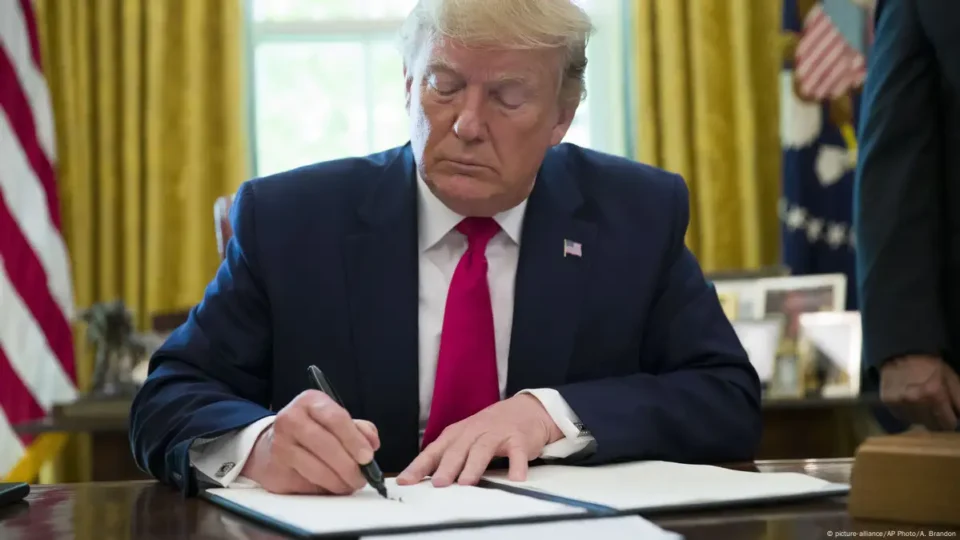India’s
India today finds itself caught in the middle of two important relationships — one with the United States and another with Iran. On the one hand, Iran has been a steady partner for India in terms of cheap oil and access to Central Asia through the Chabahar Port. On the other, the U.S. is now India’s biggest trading partner, a defense ally, and an essential counterbalance to China.
But America’s renewed sanctions on Iran are forcing New Delhi to make some very tough choices. Should it continue its energy and strategic cooperation with Tehran? Or should it fully align with Washington to secure broader economic and security benefits? Either way, India risks losing something important.
Why Iran Matters to India
Iran has long been a crucial partner for India in three main areas:
- Oil and Energy: Until sanctions made it nearly impossible, Iran supplied over 10% of India’s oil needs. It wasn’t just about volume — Iranian oil came cheaper, often on credit, and shipping costs were lower due to proximity. For an energy-hungry country like India, this was a big advantage.
- Chabahar Port: Located on Iran’s southeastern coast, Chabahar is India’s gateway to Afghanistan and Central Asia. It helps India bypass Pakistan, which blocks overland trade routes. Chabahar also balances China’s investments in Pakistan’s Gwadar Port, just 170 km away.
- Cultural and Historical Links: India and Iran share centuries of history, from trade and language to art and religion. These ties have always made the partnership warmer compared to purely transactional relations.
For India, losing Iran as a partner is not just about oil — it’s about losing a vital piece of its long-term regional strategy.
Why the U.S. Is Sanctioning Iran
The United States has had a hostile relationship with Iran for decades. The latest sanctions are driven by three main reasons:
- Nuclear Concerns: Washington believes Iran is secretly trying to build nuclear weapons, even though Tehran insists its program is for peaceful purposes.
- Regional Activities: Iran supports groups and militias in Lebanon, Syria, Iraq, and Yemen. The U.S. sees this as destabilizing the Middle East.
- Pressure Tactics: By targeting Iran’s economy, especially its oil exports, the U.S. hopes to force Tehran back to the negotiating table on nuclear and military issues.
These sanctions don’t just affect Iran — they affect every country that deals with Iran, including India.
The Energy Problem for India
Energy is India’s weakest spot in this equation. India imports more than 80% of its oil needs. Iranian oil was cheap, reliable, and came with flexible payment terms. Losing it has serious consequences:
- Higher Costs: India now buys more from Saudi Arabia, Iraq, and even the U.S., which is costlier.
- Inflation: Higher oil prices directly affect fuel, transportation, and food prices in India.
- Trade Balance: More expensive imports worsen India’s trade deficit and weaken the rupee.
For ordinary Indians, this translates into rising petrol and diesel prices, which quickly become a political headache for the government.
Chabahar Port: India’s Gateway Blocked
The Chabahar Port is not just about trade — it is about strategy. Through this port, India can send goods to Afghanistan without depending on Pakistan. It also opens doors to Central Asia’s rich energy markets.
But U.S. sanctions have slowed down Chabahar’s development. Although Washington gave India a special waiver because of its importance for Afghanistan, the overall environment remains risky. Global banks and shipping companies hesitate to get involved in Iran-related projects.
This has left India’s grand plans for regional connectivity hanging in the balance. Meanwhile, China is moving aggressively in Iran, signing a $400 billion, 25-year partnership deal. If India pulls back too much, Beijing could take over the space India had hoped to occupy.
Why the U.S. Matters Even More
While Iran is important, the U.S. is even more critical to India’s rise as a global power.
- Trade and Investment: America is India’s largest trading partner. U.S. companies dominate investment in India’s IT, startup, and technology sectors.
- Defense and Security: India and the U.S. now conduct regular joint military exercises and share sensitive defense technology.
- Geopolitical Alignment: Both are part of the Quad (with Japan and Australia), aimed at countering China’s growing influence in the Indo-Pacific.
Clearly, India cannot afford to damage its ties with Washington just to preserve oil imports from Iran.
The Tightrope Walk
So how is India handling this? By carefully walking the tightrope:
- Complying Publicly: India officially stopped buying Iranian oil when U.S. sanctions tightened. This avoids penalties and keeps Washington happy.
- Keeping Channels Open: At the same time, India continues diplomatic engagement with Tehran, focusing on culture, connectivity, and humanitarian aid.
- Balancing Acts: Whenever possible, India tries to negotiate waivers from the U.S., such as for Chabahar, to keep the relationship with Iran alive.
It’s a delicate balance — too much tilt toward the U.S., and Iran feels abandoned. Too much closeness with Iran, and Washington gets angry.
Domestic Impact in India
The sanctions are not just a foreign policy headache — they also hit home.
- Fuel Prices: Indians have seen petrol and diesel prices rise, which directly affects cost of living.
- Politics: Opposition parties often blame the government for failing to control fuel prices, making it a political weapon.
- Economy: Rising oil bills worsen the trade deficit, push inflation higher, and slow down growth.
For the Indian government, especially before elections, this is a dangerous mix.
Options for India
Looking ahead, India has three possible approaches:
- Fully Side with the U.S.: Completely stop any meaningful ties with Iran. This would keep America happy but could push Iran closer to China and hurt India’s long-term strategic position.
- Balanced Approach (Current Path): Officially follow U.S. sanctions but quietly maintain limited engagement with Iran. This avoids confrontation but also limits progress.
- Defy Sanctions Boldly: Resume oil imports and expand projects like Chabahar, openly challenging U.S. pressure. While this ensures cheaper oil and regional influence, it risks U.S. penalties and strains in the partnership.
Most experts believe India will continue with option two — cautious balancing — unless the global situation changes dramatically.
The Role of China and Russia
India’s choices are further complicated by China and Russia.
- China: By signing a massive long-term deal with Iran, Beijing is securing access to Iranian oil and infrastructure. This weakens India’s position.
- Russia: Facing its own sanctions, Moscow has grown closer to Tehran. Their energy and defense ties are strengthening.
If India pulls back too much, Iran may lean entirely on China and Russia, leaving New Delhi isolated in the region.
Looking Ahead
The U.S. sanctions on Iran are not just about oil or trade for India — they are about the kind of role India wants to play in the world.
- Can India continue to balance great powers without being forced to take sides?
- Will it sacrifice short-term energy needs for long-term strategic ties?
- Or will it risk U.S. displeasure to secure its own regional ambitions?
The answers will shape India’s foreign policy for decades to come.

